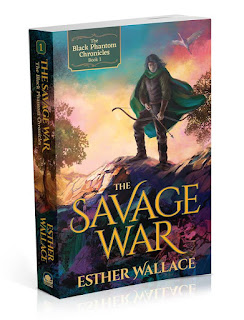Merlin Reveiw
Merlin
Review/Story
Plot
Unlike the classic
image of Merlin as an old, wise wizard, Julian Murphy’s and Johnny Capps’s Merlin rewrites the image. The series
starts as a twenty-year-old Merlin travels to Camelot, sent by his mother to
her friend, Camelot’s physician, Gaius. Her intention is for the physician to
become the father-figure for her fatherless, magical son. It seems easy. Merlin
even smiles with excitement as he sees Camelot for the first time, a shining
white castle on the horizon.
Mood and music
quickly alter, however, as the wizard arrives inside the city just in time to
witness King Uther’s execution of a person charged with performing magic. As
the ax falls, the king commences to remind those gathered that all magic is
pure evil and punishable by death.
Despite the
imminent danger, Merlin finds Gaius and remains in Camelot. And like the naïve
boy he is, he shrugs aside his peril, carelessly using his own untrained magic,
even in a bout with the young, seemingly arrogant Prince Arthur. When Gaius
warns the budding wizard that he must stop using magic, Merlin snaps, saying he
is nothing without his magic, and if he stops, he might as well die. Not long
after, however, he earnestly asks Gaius why he was born and if his magic makes
him a monster.
Gaius has no
desirable answer to the question, yet, late that night, Merlin wakes at the
sound of a voice calling his name. Following the sound deep beneath the castle,
deeper even than the dungeons, the wizard comes face to face with a dragon whom
the king has had imprisoned for life as an example. There, the dragon tells
Merlin that he was born a wizard in order to protect Arthur, Camelot’s future
king, and thereby return magic’s reign to the kingdom. Merlin denies that
possibility, insisting that he would happily help assassinate the only Arthur he’s
met.
Despite his
assurance that the dragon knows nothing, Merlin jumps to Arthur’s rescue as a
knife flies toward the prince. All of Camelot watches as the wizard pulls the
intended victim to safety. As his reward, Uther appoints Merlin as Arthur’s
servant, and so begins an unlikely brotherhood.
Positive Elements
The largest factor
in the series is Merlin’s friendship with Arthur. Despite the fact that they
can be polar-opposites, that they love riding each-other, and the dramatic
changes over the years in their own characters and the world around them, their
friendship remains. Throughout time, it only strengthens in its own unique way.
Both friends put
their own lives in danger countless times for the other. By keeping his
abilities secret, Merlin even sacrifices his own credit and freedom for Arthur,
becoming, as titled by the creators, the unsung hero. His unyielding loyalty is
often the source of wonder for Camelot’s enemies.
 Arthur’s own love for people is beyond human
reasoning. While his half sister, Morgana, rages against their hate-driven,
tyrannical, occasionally abusive father, Arthur supports where he can,
ceaselessly attempts to reason, and, only as a last resort, just does what he
feels is right, yet currently forbidden, without any judgment toward the king.
When the king finally dies, Arthur is the only one who mourns his passing.
Others only cry because they feel Arthur’s pain.
Arthur’s own love for people is beyond human
reasoning. While his half sister, Morgana, rages against their hate-driven,
tyrannical, occasionally abusive father, Arthur supports where he can,
ceaselessly attempts to reason, and, only as a last resort, just does what he
feels is right, yet currently forbidden, without any judgment toward the king.
When the king finally dies, Arthur is the only one who mourns his passing.
Others only cry because they feel Arthur’s pain.
When Morgana
decides that her one goal in life is to gain power by murder and force, Arthur
tells her that, even if she kills him, they are “still brother and sister.” He
repeatedly stops bloodshed and gains allies through his grace and mercy.
Throughout the
series, the biblical truths of love, predestination versus free choice, true
honor, and selflessness take a front row seat. The series also reveals the
destruction of hatred, arrogance, fear, and even secrets.
Spiritual Content
The series was not
written by Christians. Despite the Catholicism pervading Arthurian legends,
there is not any mention of God. There is however, an “old religion”, which is
the religion of magical beings. This religion is usually shown to be entirely
satanic, led by people simply seeking to enslave all beneath them, forcing
worship. Despite “belonging” to said religion, Merlin rejects it at the end of
the first season.
However, the series
confuses itself. Later, the series introduces priests/priestess of the “old
religion” who choose to help Arthur, despite the fact that they fear him and
that they also petition for the freedom to openly practice their magic. In
season five, Merlin says of one place that it is bathed in life and richness,
although it is an “old religion” “holy place”. Merlin also speaks of an
afterworld when speaking to his dying mother, saying that “the gods will look
after me and, one day, we’ll see each other again.”
Merlin is lightly
superstitious, which is a source of frustration to Arthur who is very
down-to-earth, sometimes to the extent of seeming that he believes in no god at
all, although both he and Guinevere (Gwen by her common name) frequently refer
to a higher law to which even they as monarchs are held. Gaius himself dabbles
with superstition, even giving Merlin a rabbit’s foot at one point.
Ghosts are a
common occurrence in Camelot and at one point the gate between the spirit world
and Earth is opened. Both evil and good spirits flood the kingdom in said
occasion, before someone sacrifices himself in order to restore what was.
Sexual Content
Despite normal
Arthurian legend, Merlin keeps itself
fairly clean sexually. There is still some messing around by supporting
characters, but it is kept off screen. Merlin’s parents never wed, to the
veiwers’ knowledge. A careful observer would notice the implications that Morgause
was conceived through adultery, as was her half sister, Morgana.
Although the
Lancelot/Guinevere disaster is touched on briefly, it is done through
enchantment, with terrible results. Without that magical control over her
actions and thoughts, Guinevere remains completely faithful to Arthur. There
are several occasions outside of that one in which enchantment forces romance
and a two-parter episode, short-term marriage.
Ladies of higher
class wear dresses that reveal quite a bit of cleavage. There are several
occasions where questionable men obviously covet the particular woman’s body
before them. Nothing happens on screen. A few men lose their pants and there is
a scene in which a bare bottom is briefly seen as the man is thrown.
Merlin disguises
once as an old crone in order to perform magic in front of Arthur. When he
shows Gaius the disguise, the physician tells the wizard that “it suits you.”
There is one crude joke about two men sharing a bed.
Violent Content
Unlike many modern shows, Merlin focuses on character
growth and the inner struggles more than blood and guts. That said, things
happen and battles are everywhere.
Blood is at
minimal and executions happen off-screen by cutting from the instrument of
death to someone watching it. In battle, however, many fall by swords, axes,
spears, fire, knives, disgusting and not so disgusting magical creatures, and
even by lightning called forth by “the world’s most powerful wizard.”
In a few episodes,
voodoo is used to inflict harm. One magical creature kills her male victims
through a kiss. Evil spirits take the form of skulls, and it is not uncommon
for the heroes to come across fields strewn with dead.
Drug or Alcohol Content
Naturally, alcohol
is part of every meal, that is, unless someone does not brew it himself and has
no money to purchase it. Most of the time it is never excessive drinking, but a
few people do become drunk. It is also joked about on many occasions. Later in
the series, Arthur describes Merlin as someone with a drinking problem, who
also likes to spend half his time at the local tavern. This is untrue, but
Merlin resignedly allows Arthur to think so, rather than reveal the truth of
his absences.
There are no drugs
except in the case of medicine and the attacks hidden in unsuspecting victims’ drink.
Crude or Profane Language
A few instances of
h—l, d—n, and g—d. Merlin and Arthur are also commonly throwing insults at each
other. Idiot, ass (as in donkey), and the very British word, prat are just a
few of the insults they exchange.
Other Negative Elements
Merlin keeps the
fact that he is magical a secret long after Uther is dead. It is not until the end
that he reveals his deceit to Arthur and it is almost too late. Through not
speaking earlier, Merlin helps create many of Camelot’s enemies, Mordred and
Morgana among them.
Merlin is called a
warlock instead of wizard by the dragon. All use of magic causes eyes to turn
yellow.
Evil is pure evil.
The story never tries to make light of it or have it happen off screen. From voodoo
in the first episode to devilish manipulation, it is bare-faced, satanic
warfare on the defenders of Camelot. Merlin himself falls to using his talent
in evil ways on three different occasions. The first time he pulls a spell out
of a book titled The Art of Necromancy, in order to unmask a wraith. The second
time, he reduces Arthur to a mindless fool in order to force escape. Thankfully,
Merlin is not easy with the result as he has no control over it once done. The
last time Merlin dabbles into the sinister, he uses something resembling voodoo
in order to strip Morgana of her magical talents temporarily and thereby allow
the heroes to retake Camelot from her clutches.
Lastly, a humor seen
in many kid shows flows through the series. Although it is usually fine, there
are a few bathroom jokes, gaseous disturbances, falling pants, and the before
mentioned cracks on the homosexual and transgender line.
Conclusion
It is refreshing to have a modern story focus on
character, morals, and friendship. Merlin
is about love, sacrifice, and the ultimate need for God. The series also
negates the common push to view humans as no more than animals in which only
super powers or magical ability makes someone more. Instead, Arthur is no less
important than Merlin. Both make mistakes, both help bring about the end, good
and bad.
Although the
writers, directors, and actors had no conscious thought about God, Merlin reveals that the world is God’s,
that every movement on its surface—war and peace—is directed and allowed by
Him, and our only real task is to do the best we can, in every situation, to
live for our Savior for as long as He grants us time on Earth. That is the
story Merlin tells.
All pictures from
Far Away Site
Format from
Pluggedin






Comments
Post a Comment